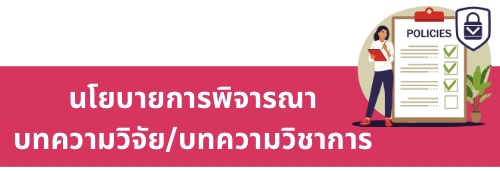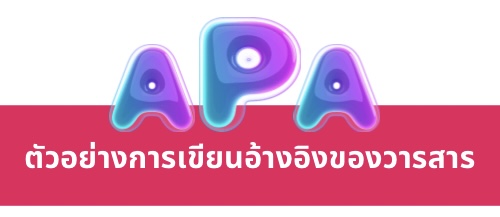ภาวะกล้ามเนื้อหัวใจอักเสบที่เกิดจากวัคซีนโควิด 19 ชนิดเอ็มอาร์เอ็นเอ
คำสำคัญ:
วัคซีนโควิด 19 ชนิด mRNA, กล้ามเนื้อหัวใจอักเสบบทคัดย่อ
วัคซีนโควิด 19 ชนิด Messenger Ribonucleic acid หรือ mRNA เป็นวัคซีนที่ใช้เทคโนโลยีการผลิตที่ทันสมัย จึงแนะนำให้ใช้ในผู้ที่มีอายุ 12 ปีขึ้นไป โดยพบว่ามีประสิทธิภาพในการป้องกันการติดเชื้อโควิด 19 สูงกว่าร้อยละ 90 รวมทั้งช่วยลดความรุนแรงของการติดเชื้อ ลดอัตราการเสียชีวิต และป้องกันการติดเชื้อโควิด 19 ที่มีการกลายพันธุ์ แต่มีอาการไม่พึงประสงค์ คือ ภาวะกล้ามเนื้อหัวใจอักเสบ ซึ่งปัจจุบันยังไม่ทราบสาเหตุของการเกิดที่แน่ชัด ส่วนใหญ่พบในเพศชายอายุน้อยกว่า 30 ปี สัมพันธ์กับการรับวัคซีน mRNA เข็มที่ 2 ระยะเวลาการเกิดโรคหลังจากฉีดวัคซีน 3 - 7 วัน อาการแสดงที่พบบ่อย คือ เจ็บหน้าอก เหนื่อยง่าย และใจสั่น รู้สึกเหมือนหัวใจเต้นแรงหรือเต้นเร็ว หากอาการรุนแรงจะทำให้เกิดภาวะหัวใจล้มเหลวหรือช็อคได้ การวินิจฉัยใช้การตรวจคลื่นแม่เหล็กไฟฟ้าของหัวใจ (Cardiac MRI) ตรวจความผิดปกติของคลื่นไฟฟ้าหัวใจ (EKG) ค่าเอนไซม์หัวใจ (Cardiac enzyme) แม้ว่าวัคซีนโควิด 19 ชนิด mRNA จะมีความเสี่ยงในการเกิดอาการไม่พึงประสงค์ที่หัวใจ แต่อุบัติการณ์เกิดนั้น
ส่วนใหญ่มีอาการไม่รุนแรง เกือบทั้งหมดหายเป็นปกติได้ เมื่อเปรียบเทียบกับประโยชน์ที่ได้รับจากวัคซีน จึงแนะนำให้มีการฉีดวัคซีน mRNA ในการป้องกันการติดเชื้อโควิด 19 แต่ในผู้ที่มีประวัติเป็นโรคกล้ามเนื้อหัวใจอักเสบควรปรึกษาแพทย์ผู้รักษาเพื่อประเมินภาวะของโรคและพิจารณาความเสี่ยงก่อนเข้ารับการฉีดวัคซีนโควิด 19 ชนิด mRNA
Downloads
เอกสารอ้างอิง
Center for Disease Control and Prevention. (2023). Myocarditis and pericarditis after mRNA COVID-19 vaccination. Retrieved from https://www.CenterforDiseaseControlandPrevention.gov/coronavirus/2019-ncov/vaccines/safety/myocarditis.html
Department of Disease Control. (2021). Guidelines for COVID-19 vaccination in the outbreak situation in 2021 in Thailand, 1st revised edition. Retrieved from https://tmc.or.th/covid19/download/pdf/covid-19-public-Vaccine-040664.pdf
Department of Disease Control. (2023). Weekly COVID-19 patient situation within the country. Retrieved from https://ddc.moph.go.th/covid19-dashboard/
Expert Panel on Adverse Events Following Vaccination Thai Cardiology Association under the Bureau of Epidemiology, Department of Disease Control. (2021). Myocarditis and pericarditis after mRNA vaccination. Bureau of Epidemiology, Department of Disease Control, Ministry of Public Health. Retrieved from https://www.dropbox.com/s/cuxgk4348rwjnnz/Vaccine%20induced%20myocarditis_Jul29_2021_Final_v2.pdf?dl=0&fbclid=IwAR2xPffHZ-bGjBIOBBJfuA4vL5Yh0XYzAwJZkS3EHT2qrLakEM27bCOm2_Y
Heidecker, B., Dagan, N., Balicer, R., Eriksson, U., Rosano, G., Coats, A., . . . Lüscher, T. F. (2022). Myocarditis following COVID-19 vaccine: Incidence, presentation, diagnosis, pathophysiology, therapy, and outcomes put into perspective. A clinical consensus document supported by the Heart Failure Association of the European Society of Cardiology (ESC) and the ESC Working Group on Myocardial and Pericardial Diseases. European Journal of Heart Failure, 24(11), 2000–2018. https://doi.org/10.1002/ejhf.2669
Ling, R. R., Ramanathan, K., Tan, F. L., Tai, B. C., Somani, J., Fisher, D., & MacLaren, G. (2022). Myopericarditis following COVID-19 vaccination and non-COVID-19 vaccination: A systematic review and meta-analysis. The Lancet, Respiratory Medicine, 10(7), 679–688. https://doi.org/10.1016/S2213-2600(22)00059-5
Straus, W., Urdaneta, V., Esposito, D.B., Mansi, J. A., Rodriguez, C. S., Burton, P., & Vega, J. M. (2021). Myocarditis after mRNA-1273 vaccination: A population-based analysis of 151 million vaccine recipients worldwide. Clinical Infectious Disease, 70(3), e544-e552. https://doi.org/10.1093/cid/ciac446
Su, J. R. (2021). Myopericarditis following COVID-19 vaccination: Updates from the vaccine adverse event reporting system (VAERS). Retrieved from https://stacks.cdc.gov/view/cdc/109492
Thitichai, P., & Taweewiyakarn, P. (2021). Report on the results of reviewing the COVID-19 disease situation and preventive control measures at the global level and in Thailand. Bureau of Epidemiology, Department of Disease Control, Ministry of Public Health. Retrieved from http://www.thaincd.com/document/file/download/knowledge/COVID19.65.pdf
Wongrachit, K. (Ed.). (2022). Endemic approach to COVID-19. Strategy and Planning Division, Office of Permanent Secretary.
World Health Organization. (2023). Coronavirus disease (COVID-19) pandemic. Retrieved from https://www.WorldHealthOrganization.int/emergencies/diseases/novel-coronavirus-2019

ดาวน์โหลด
เผยแพร่แล้ว
รูปแบบการอ้างอิง
ฉบับ
ประเภทบทความ
สัญญาอนุญาต
ลิขสิทธิ์ (c) 2023 วารสารพยาบาลตำรวจ

อนุญาตภายใต้เงื่อนไข Creative Commons Attribution-NonCommercial-NoDerivatives 4.0 International License.
ผลงานที่ได้ตีพิมพ์แล้วจะเป็นลิขสิทธิ์ของวารสารพยาบาลตำรวจ














